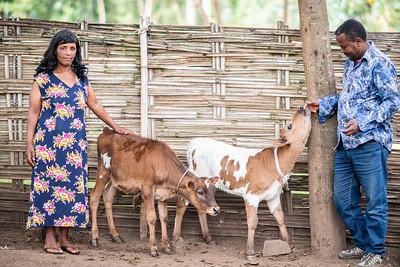
Receiving livestock assets by households in conflict affected area can improve women’s mental health
Core message
An innovative livestock asset transfer program – Pigs for Peace (PFP) – in eastern Democratic Republic of Congo produced strong evidence of positive impact upon women’s mental health.
The program evaluated the effectiveness of a hybrid microcredit / livestock asset transfer program on economic, health and intimate partner violence outcomes using a randomized community trial. Half of the selected villages received the pigs 18 months after the initial group, and thus represented the control group.
Individual participants each received a female piglet and agreed to pass on two piglets from the first litter. Most of the household participants were women (84%), 25 years of age or older, married, had on average 3 children and had never attended school.
At the beginning of the program, and after 18 months, participants were surveyed on their subjective health, PTSD, anxiety and depression, economic stability and exposure to 18 different trauma events, such as deprivation, combat, forced isolation, sexual violence/humiliation) over the past 10 years.
The survey found that participants reported a mean of over four conflict-related traumatic events in the past ten years such as being close to death, imprisonment, or witnessing or experiencing sexual violence. However, keeping livestock assets were found to moderate the effects of these events. This effect was independent of other household wealth indicators.
As livestock/animal assets increase, the impact of conflict-related traumatic events on symptoms consistent with PTSD and depression are reduced.
Full citation
Glass, N. et al. 2014. Livestock/animal assets buffer the impact of conflict-related traumatic events on mental health symptoms for rural women. PLoS ONE 9(11): e111708.